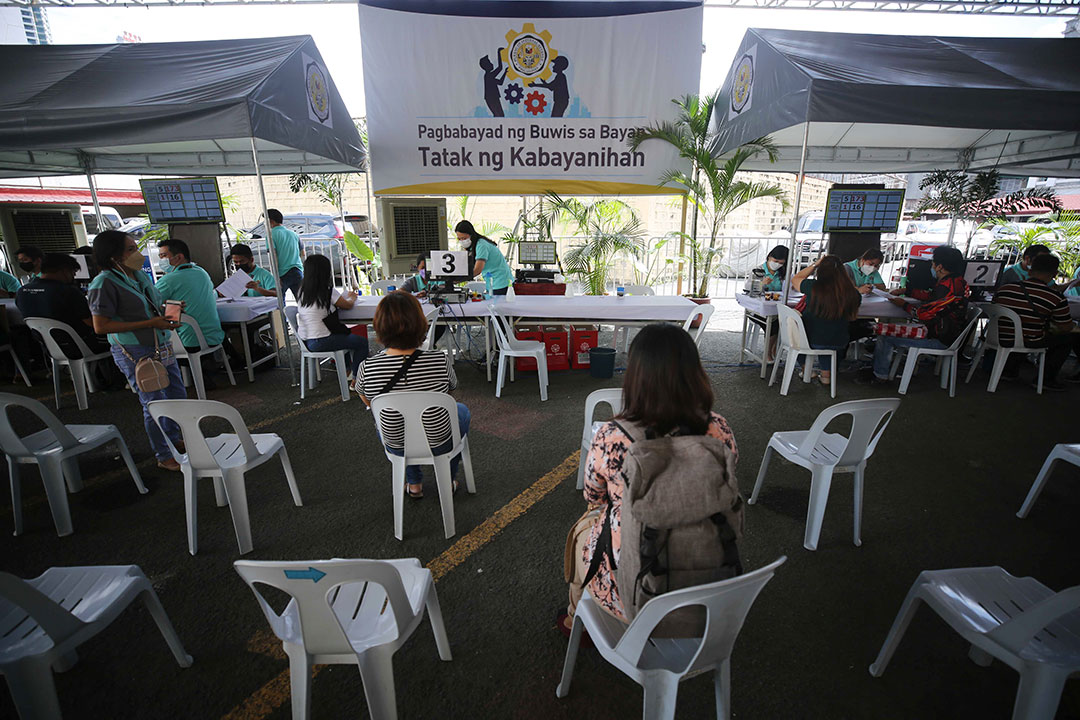DoF renews push for general tax amnesty bill

By Aubrey Rose A. Inosante, Reporter
THE Department of Finance (DoF) will renew its push for the passage of a general tax amnesty (GTA) bill in the incoming 20th Congress.
Finance Undersecretary Maria Luwalhati C. Dorotan-Tiuseco said the department is interested in pushing for a new general tax amnesty bill after it failed to secure Congress’ approval.
“[The bill] will address the issues on the veto,” Ms. Tiuseco said in a Viber message on June 13.
In 2019, then-President Rodrigo R. Duterte vetoed the provisions on the general tax amnesty under the Republic Act (RA) No. 11213 but retained the provisions for estate tax amnesty.
The tax amnesty program looked to impose an amnesty charge equivalent to a portion of the taxpayers’ outstanding unpaid taxes in exchange for immunity from civil, criminal, and administrative penalties.
For his part, Bureau of Internal Revenue (BIR) Commissioner Romeo D. Lumagui, Jr. said the discussions on a general tax amnesty are in the early stages.
“It’s not like it’s being seriously discussed to the point of saying it will happen this year. But it’s being talked about — whether it will happen or not — it’s still kind of in a very, very early stage of discussion,” he said.
In his veto message at that time, Mr. Duterte urged Congress to pass another bill on the general tax amnesty that includes the “lifting of bank secrecy for fraud cases, the inclusion of automatic exchange of information, and safeguard to ensure that asset or net worth declarations are truthful.”
“[Mr. Duterte] noted that without the lifting of the Bank Secrecy Law, the GTA may be abused by taxpayers declaring untruthful asset or net worth without the BIR being able to double check the taxpayers’ representations,” Eleanor L. Roque, a tax principal at P&A Grant Thornton, said in an e-mail to BusinessWorld.
The Bank Secrecy Law or the Republic Act No. 1405 protects the confidentiality of bank deposits in the Philippines. This prevents disclosure or inquiry of deposits in banking institutions.
Ms. Roque said a general tax amnesty could generate much-needed revenue for the government.
“Generally, a GTA is crucial when major tax laws are introduced to give the taxpayers a clean slate. That was the reason why RA 11213 was intended to be a companion law to the Tax Reform for Acceleration and Inclusion (TRAIN) law,” she said.
Republic Act No. 10963 or TRAIN, which took effect in 2018, cut personal income tax while increasing the rates on some goods and services.
“Considering the BIR’s intensified efforts in tax audits, some taxpayers may wish to avail the GTA to close ongoing assessments. However, the take-up of the GTA may depend on whether the amnesty amount is reasonable compared to the taxpayers’ deficiency tax exposure and cost of litigation,” Ms. Roque said.
The tax expert also said that the DoF should ensure the ease of availing the general tax amnesty in terms of documentary requirements and reasonable amount.
“It should also provide for a definite time period for the BIR to issue the confirmation of entitlement for the benefits of availing the tax amnesty,” she said.



